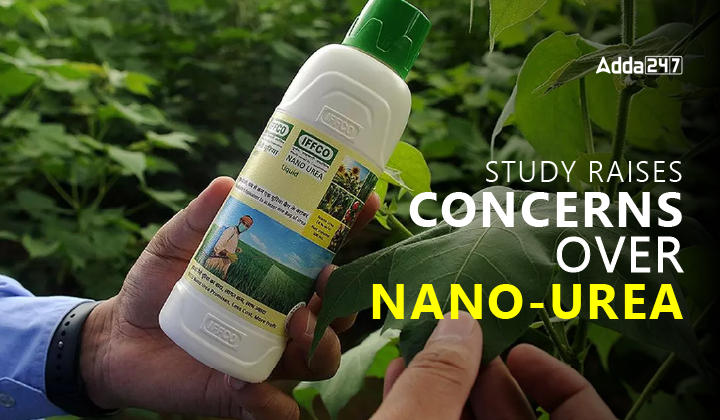Punjab Agricultural University Research Highlights Concerns Over Nano-Urea Use
A recent study conducted by Punjab Agricultural University (PAU), Ludhiana, has found that the continued use of nano-urea could significantly reduce crop yields. The study, published in the journal Plant Soil, raises concerns over its effectiveness as a substitute for conventional urea in Indian agriculture.
Key Findings of the Study
- The study observed a reduction of 35% in wheat yield and 24% in paddy yield due to nano-urea usage.
- Protein content in grains also declined in the crops where nano-urea was used.
- Plants were unable to effectively utilize the nitrogen from nano-urea, leading to lower productivity.
- Root development suffered, impacting nutrient absorption.
The Nano-Urea Debate
Nano-urea, a liquid fertilizer promoted by IFFCO and the Indian government, has been marketed as a cost-effective alternative to traditional urea. The manufacturers claim that one 500 ml bottle of nano-urea can replace a 45-kg bag of conventional urea, thereby reducing the overall fertilizer subsidy burden on the government.
However, PAU scientists argue that there is little scientific evidence to support this claim. The study’s lead researcher, Rajeev Sikka, emphasized that more trials are needed to assess nano-urea’s actual impact on crop productivity and soil health.
Government and Industry Response
IFFCO has defended nano-urea, citing previous trials that showed no yield loss. However, the PAU study contradicts these claims, urging policymakers to conduct further research before large-scale adoption.
With India’s agricultural sector highly dependent on urea, the study underscores the need for careful evaluationbefore completely replacing traditional fertilizers with nano-urea.
Future Implications
The findings from this research suggest that premature adoption of nano-urea could harm India’s food production and farmer incomes. Experts recommend that policymakers conduct extensive field trials to determine the feasibility of nano-urea in diverse agricultural conditions.




 BSSC Field Assistant Recruitment 2025 No...
BSSC Field Assistant Recruitment 2025 No...
 Bihar BSSC Field Assistant Salary 2025, ...
Bihar BSSC Field Assistant Salary 2025, ...
 JCI Recruitment Syllabus 2025, Check for...
JCI Recruitment Syllabus 2025, Check for...


 Adda247 Job portal has complete information about all Sarkari Jobs and Naukri Alerts, its latest recruitment notifications, from all state and national level jobs and their updates.
Adda247 Job portal has complete information about all Sarkari Jobs and Naukri Alerts, its latest recruitment notifications, from all state and national level jobs and their updates.